Best Modern Sci-Fi Books
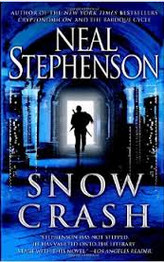 1. Snow Crash
1. Snow CrashNeal Stephenson is known for his thousand-page epics. I enjoy those. But, I think he was even better back before his popularity allowed him to tell editors to take-a-hike. Snow crash is a fast-paced romp through a near-future world with some of the best characters in any Neal Stephenson book. Seveneves
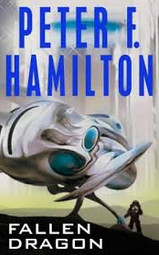 2. Fallen Dragon
2. Fallen DragonPeter F. Hamilton has three well-written multi-book sagas. But, he tends to reuse themes and plot devices (alien artifacts, asymmetric warfare, eccentric billionaires, techno-marines, inscrutable AI’s) throughout. So, I suggest you start with one of his shorter standalone novels. It will let you know if Peter F. Hamilton a good fit for your tastes and it has one of the best endings of any in his collection, to boot.
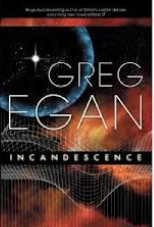 3. Incandescence
3. IncandescenceGreg Egan is a genius. Unfortunately, he is so smart that the ideas in his books are non-trivial to understand. This is great if you are looking for something no one else has tried. Just be warned that none of his books are light-reading. I selected Incandescence as my recommendation because it is full of interesting science and also has a clever ending. The ending is so clever, that it appears many reviewers missed it. So, keep you eyes peeled.
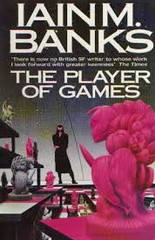 4. The Player of Games (Culture)
4. The Player of Games (Culture)I’m recommending the second book in Iain M. Banks “Culture” series because the first one was more like an introduction or perhaps a trial-run. You don’t miss much by just skipping “Consider Phlebas” and your opinion of “The Player of Games” will more precisely mirror your opinion of the other books in the 10-book series.
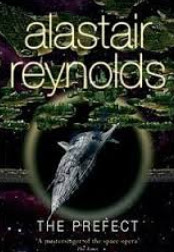 5. The Prefect
5. The PrefectSome people like to compare Iain M. Banks’s “Culture” series to Alastair Reynolds’s “Revelation Space” series. But, while there are some similarities, I suspect that they will appeal to different audiences. This is because unlike most space-opera the “Revelation Space” series is very brooding. Even when the heroes win, you get the feeling that they are all doomed someday. “The Prefect” is a stand-alone novel in this series and has a nice little mystery packed inside.
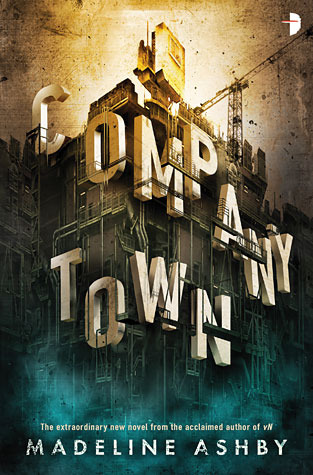 6. Company Town by Madeline Ashby
6. Company Town by Madeline AshbyCompany Town, in many ways, borrows from the books on the rest of this list. William Gibson’s assertion that “future humans are just like us only with better tech”, Neal Stephenson’s butt-kicking young female protagonist from Snow Crash, John Scalzi’s “Sci-Fi should include murder mysteries”, some talk of the technological singularity, and even some echos of the silo from Wool all contribute to make Company Town into what it is. What that is is a rock-um sock-um good time. What’s even better is that I feel like Madeline Ashby is just getting warmed up.
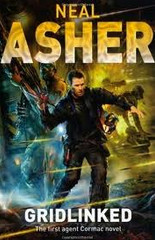 7. Gridlinked (Ian Cormac, Book 1)
7. Gridlinked (Ian Cormac, Book 1)Neal Asher has a tendency to write rather cringe-worthy passages. So, you have to have a string stomach to read his stuff. But, there are just so many interesting ideas spread across his “Polity” books that they are a bit of a guilty-pleasure of mine. I recommended “Gridlinked” here not because it is the best of the series or even because it is part of the best sub-series. I recommended it because it is the first book in the series and I don’t think Neal Asher books would work as well read out of publication-order.
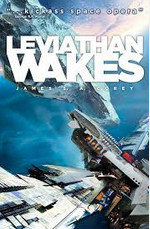 8. Leviathan Wakes
8. Leviathan WakesThe ongoing “Expanse” saga is chalked full of space-opera action and adventure. There are also a number of very strong characters in the series. While the first book is a bit different from the others in terms of construction, you will still be able to make an informed decision to continue after reading it alone. Since the books seem to be telling one continuous story you should not read them out of order.
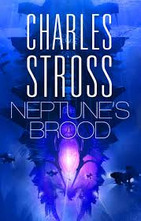 9. Neptune’s Brood
9. Neptune’s Brood“Neptune’s Brood” is actually a sequel to the book “Saturn’s Children.” Despite the titles I didn’t realize this until I was well into the book. One of the reasons I didn’t notice is that “Neptune’s Brood” is much stronger in the ideas-department. “Saturn’s Children” has a good premise (and eye-catching cover art), but doesn’t hold a candle to the free-markets-taken-to-an-extreme and interstellar-currency explorations that occur in “Neptune’s Brood.”
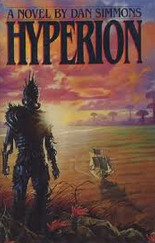 10. Hyperion
10. HyperionWhile “Hyperion” is technically the first in a series, I have decided that it should have been a stand-alone novel. I read the second book and had the same thought that I had when I saw the second Matrix Movie. That thought was “shoot, I should have quit after one.” Perhaps the reason I was so disappointed that Hyperion is really a collection of interconnected-short-stories that are each fairly clever while the sequel attempts to package everything up into something more traditional and mundane.
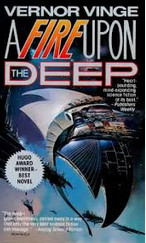 11. A Fire Upon The Deep (Zones of Thought)
11. A Fire Upon The Deep (Zones of Thought)Vernor Vinge is a good writer and “A Fire Upon the Deep” is one of my favorites from him. While it is technically the first book in a series, I think it is better considered a stand-alone novel. The second book is a prequel and focuses on a single character. The more traditional sequel that comes third was just not as strong.
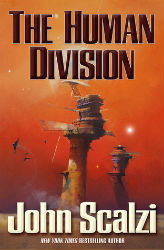 12. The Human Division (Old Man’s War)
12. The Human Division (Old Man’s War)John Scalzi is often referred to as a Military Sci-fi author. But, I think that does him a bit of an injustice. While his books often feature military personal and war, they are less about the tactics of battle and more about diplomacy and politics. For me, this makes the plots more interesting. Normally, I wouldn’t recommend the fifth book in a series (as I have here). But, I enjoyed this one more than any of the other four (including the very popular “Old Man’s War
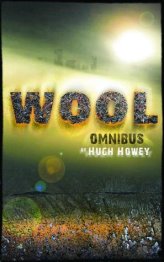 13. Wool
13. WoolSelf-published author Hugh Howey’s post-apocalyptic “Silo” series seems a perfect fit for the mood of the modern-age. Dysfunctional politics, scarce-resource worries, and people going about their days in a haze of apathy conspire to create a sense of realism in an otherwise-alien world. But, while the mood is pessimistic, the stories are clever and the mysteries satisfying. The first book, which is sometimes sold in its five constituent parts, is the best of the three. But, you will want to finish this Sci-Fi series just to learn the ultimate fate of the Silo occupants.
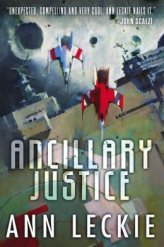 14. Ancillary Justice
14. Ancillary JusticeThe first book in Ann Leckie’s Imperial Radch Space Opera sets up an intriguing future universe where the most of humanity lives under the rule of an imperial power. I didn’t find the actual story in this first book overwhelmingly compelling. But, the ideas embedded within it are worthy of mention next to those of the grey-haired Sci-Fi greats of yesteryear. It’s nice to see a modern Sci-Fi book that is as concerned with social commentary as it is with spiffy future technology.
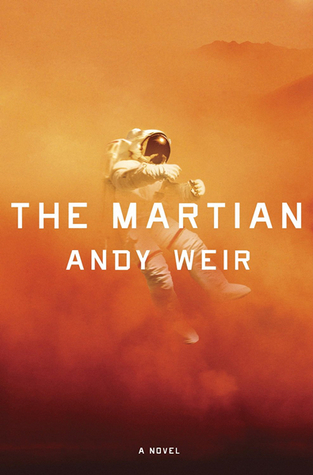 15. The Martian
15. The MartianUnlike the other sci-fi books on this list that were all written by professional novelists, this is Andy Weir’s only work to date. It started as just a fun blog-project, but has become a global phenomenon. They even made pretty-decent a movie staring Matt Damon. The premise is simple, a cheeky but brilliant astronaut is stuck on mars and he has to save himself with science. If you liked MacGyver you should read this even if you are not a Sci-Fi fan.
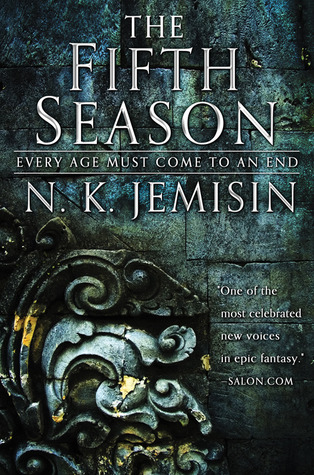 16. The Fifth Season by N.K. Jemisin
16. The Fifth Season by N.K. JemisinI wasn’t sure if The Broken Earth series was Sci-Fi or Fantasy at first. But, after finishing both published volumes, I can assure you it is sci-fi. Well done, sci-fi at that. The characters are interesting. The fictional universe is endlessly fascinating. And, the story is well constructed. I was not surprised it won the Hugo and you won’t be, either.
Posted on April 8, 2014 then Updated September 24, 2017By Geek




WHA the 2nd Hyperion book is a masterpiece and it blows the first away by comparison. I always tell people to read the second one if they can’t make it through the first. I also thought Consider Phelbas the be a better novel than Player of Games.
Excellent list. Thank you for posting it!
I am over these series books. Write one and move on please. The Human Division is where I will start.
I love science fiction! I’ve read plenty of the classics and even took a sci-fi lit class in college – out of these I’ve only read The Martian, but I’ll definitely have to check out some others on your list!